Why We Must Not Forget About Dickens
Dickens didn’t just capture the misery of those who can't afford to celebrate the holidays, he pointed to something far worse, the social poverty that plagued countless people around the world.
Hey guys! I have an amazing guest blogger today! Lyna has blown me away in the past with her thoughtful and spot-on thoughts about historical topics, so I asked her to write our third Friday Dickens article for the month of December. I think it is fantastic.
Go check out her blog, and I hope you’re having a great Advent!
— Mariella
I’m beyond excited to have the opportunity to guest write for The Literary Ladies' Tearoom! Today, I’ll be sharing something I’ve been wanting to dive into for a while, Charles Dickens ! On why, I think that his books should still be on your reading list as an adult, and why does his work remain so relevant today! I hope you enjoy reading this as much as I enjoyed writing it ;)
I don't think I really need to introduce you to Charles Dickens, chances are, you're already familiar with him. At some point in your life, whether through school, your younger years, or cinematic adaptations, you've likely been in contact with the Dickensian world.
I met Dickens when I was just a child. Not the man, of course, but the storyteller. My first encounter was through a Disney adaptation of A Christmas Carol, where the suffering of poor Tiny Tim left me in tears. Later, I actually had to read it in school and eventually picked up some of his other works here and there in my early teens. I’ve always been enchanted by the magic of his books, how his characters were so familiar but still were always able to surprise me.
As I grew older, I realized that I had somewhat forgotten a little about Dickens, but it didn’t stop me from noticing something: many of his books, once cherished in my youth and by many others around me, are often forgotten in adulthood and are seen as being too “childish” (at least that was my personal experience). For a while, I didn’t think much of it, until one day, one of my literature teachers went on a rant about how much he hated Dickens. That kind of bothered me, because sure, his texts may not always be the most complex or nuanced, and the morals behind his stories can sometimes feel overly simplistic. But despite that, I still believe that Dickens is a talented writer deserving of the prestige he holds today.
I think that as we grow, as our lives tend to dim under the weight of responsibilities, we forget the power these simple stories once held. They weren’t just lessons in kindness or honesty, they were also critiques of society. In today’s world, where consumerism and hyper-materialism are at their prime, we might need these stories more than ever.
Critique of Victorian Society
Through his novels, Dickens illustrated a portrait of Victorian society in all its complexity, particularly the grim realities faced by the forgotten people of society, the poor and starved working class. He didn’t shy away from exposing the darker side of Victorian life: poverty, neglect, and the brutal workings of industrialization. Institutions like workhouses, prisons, and orphanages, which trapped the poor in an unending cycle of suffering, were frequent targets of his critiques. Dickens denounces how social injustices forced people to do horrible things in order to survive. Women forced into prostitution, children into stealing, men into scamming.
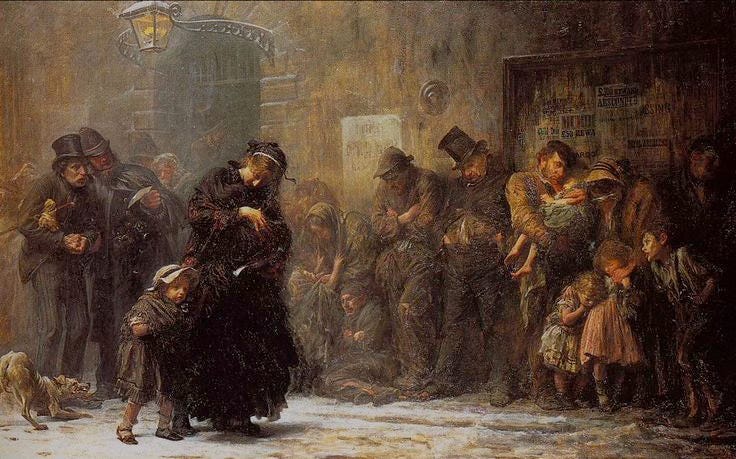
The first chapter of Bleak House (1853) perfectly illustrates the gloominess of Victorian England.
"Fog everywhere. Fog up the river, where it flows among green aits and meadows; fog down the river, where it rolls defiled among the tiers of shipping and the waterside pollution of a great (and dirty) city. Fog on the Essex marshes, fog on the Kentish heights. Fog creeping into the cabooses of collier-brigs; fog lying out on the yards, and hovering in the rigging of great ships; fog drooping on the gunwales of barges and small boats. Fog in the eyes and throats of ancient Greenwich pensioners…"
In Oliver Twist (1838), Dickens offers to his readers a terrifying glimpse into the childhoods of countless Victorian orphans, forced into workhouses where endless humiliation, hunger, abuse, and hypocrisy are put onto them. The children are starved, with a single scoop of gruel being their only meal. When Oliver, one of the many suffering, dares to ask for more food, he is brutally punished for it.
I think that what makes Dickens timeless and deeply uncomfortable, is his ability to show us ourselves. We look back on Victorian England and think, "Thank goodness we’re not like that anymore," but aren’t we? Our modern “slums” may not have as many people or children, but the systemic inequities remain.
In Nicholas Nickleby (1838-9), young Nicholas is sent to Dotheboys Hall, a school run by the abusive headmaster, Wackford Squeers. Dickens exposes the horrific conditions of schools where unwanted children were placed, living in conditions as terrible as those in the workhouses.
“Pale and haggard faces, lank and bony figures, children with the countenances of old men, deformities with irons upon their limbs, boys of stunted growth, and others whose long, meagre legs would hardly bear their stooping bodies, all crowded on the view together; there were the bleared eyes, the hare-lip, the crooked foot, and every ugliness or distortion that told of unnatural aversion conceived by parents for their offspring, or of young lives which, from the earliest dawn of infancy, had been one horrible endurance of cruelty and neglect. There were little faces which should have been handsome, darkened with the scowl of sullen, dogged suffering; there was childhood with the light of its eye quenched, its beauty gone, and its helplessness alone remaining.”
Despite the heaviness of what Dickens condemns, the book is structured with a surprisingly comedic and lively tone, which is what makes it so compelling.
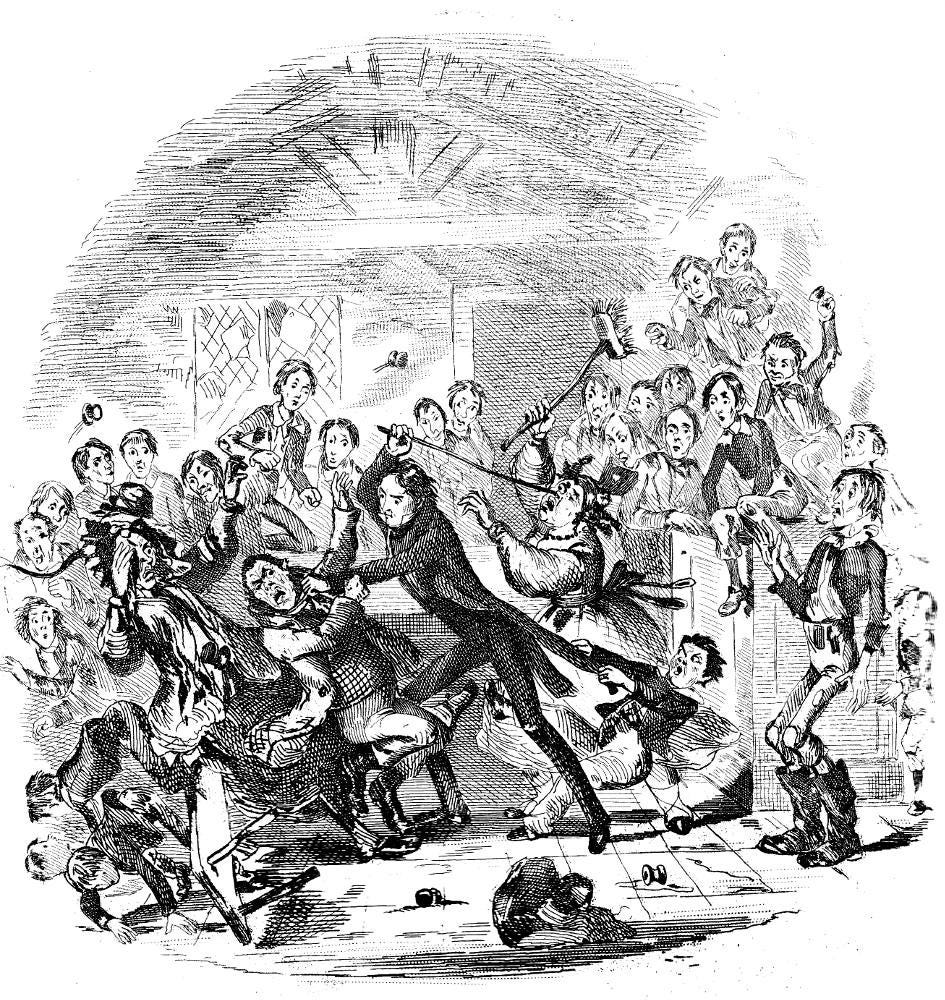
Against the Criticisms
As I said earlier, I think that he is often underestimated as an author because his work seems deceptively simple or, as some say, silly. For example, A Christmas Carol appears to be just a story of a grumpy old man learning kindness and starting to be more empathetic right ?But beneath the simplicity of the narrative, Dickens addresses complex themes through the struggles of his characters. His portrayal of suffering is raw and genuine and will touch you.
I think it’s harder to create something simple yet profound than something complex and intricately structured. Think of works like Candide or Molière’s plays. Their satirical, often simplified characters have a directness and depth that resonate, despite their simplicity. And those are still pieces of culture that are so relevant to this day.
Many writers have criticized Dickens's work over the years. For example, Oscar Wilde dismissed him for being overly sentimental, and Virginia Woolf claimed that, "He has created more characters than anyone since Shakespeare, but they are puppets with no inner life."
It’s true that Dickens doesn’t delve deeply into the psychological complexities of his characters. Instead, they often function as archetypes. But even as archetypes, I believe they remain deeply relatable, even to us in 2024.
We all know someone that is a Scrooge. Maybe it’s the grumpy bus driver who barely acknowledges his coworkers or the gruff man that lives next door. Consider Tulkinghorn from Bleak House, a morally bankrupt figure whose entire existence revolves around exploitation of manipulation (aren’t sadly so many politicians like this?). Most importantly, haven’t we all, at some point, felt like the children in Dickens’s novels, yearning for love and kindness ? Take Oliver Twist, for instance. Summoning every ounce of courage his small frame could hold, he dared to ask for something so simple yet so unattainable in his reality:
"Please, sir," replied Oliver, "I want some more."
Dickens’s Personal Experience
Dickens himself was a victim of child labor, sent to work at a factory at just twelve years old, where he worked long hours for a mere six shillings a week. This humiliating experience stayed with him for the rest of his life.
“No words can express the secret agony of my soul as I (…) felt my early hopes of growing up to be a learned and distinguished man crushed in my breast. The deep remembrance (…) of the misery it was to my young heart to believe that day by day, what I had learned and thought and delighted in and raised my fancy and emulation up by was passing away from me (…) cannot be written.”
Why is that still relevant today, you might ask? While child labor may no longer be as widespread in developed countries as it was in Dickens’s time, it remains a worrying issue in many parts of the world. According to the International Labour Organization (ILO), over 160 million children worldwide, between the ages of 5 and 17, are still living in the same dire conditions that Dickens described more than 180 years ago.
Santa Claus Is Coming to Town, But Not for Everyone
As December draws to a close and Christmas approaches, a time of celebration for many, but not for everyone. Dickens didn’t just capture the misery of those who can't afford to celebrate the holidays, he pointed to something far worse, the social poverty that plagued countless people around the world. The kind of emptiness that comes from having no one on such important occasions. It’s a reality we forget all too easily, especially when we're surrounded by the noise of those who have more than they need.
Dickens made sure we saw this, and honestly, it's a truth that hasn't changed. Whether you celebrate Christmas or not, the loneliness remains the same. It hit me this year, after volunteering at the hospital this year. For many of the elderly patients, the holidays have lost their meaning for them. They haven’t had a real plan for Christmas in years. Maybe a phone call here and there, but no family to visit, no one to bring them even a little joy. Some can’t even leave their rooms. For them, the holidays aren’t a time of cheer, they're just another painful reminder of how forgotten they are.
It might sound like a cliché, but it’s a reality for many. We should be grateful for the people around us, even when they drive us crazy (I’m talking about that overstepping aunt or the not-so-politically-correct uncle). Because, honestly, isn’t it better to have someone, even if they’re a burden, than to be left with nothing at all?
Charles Dickens’s A Christmas Carol (1843) really nails this, with Ebenezer Scrooge, who, despite having money, has spent countless miserable Christmases. He’s not just a symbol of cruelty and apathy; through the Ghost of Christmas Past, Dickens takes us back to a lonely childhood, abandoned at school and starved of love and care, which eventually turns him into the bitter, resentful man we meet at the start. It’s a harsh reminder that neglect and isolation can shape someone into the cold-hearted adult we see in the story.
Scrooge’s infamous declaration, “If they would rather die, they had better do it, and decrease the surplus population,” highlights the chilling dehumanization at the heart of capitalist ideologies of the time, ideologies that are still very visible today. Yet, Dickens doesn’t leave us in despair. Through Scrooge’s transformation, he offers hope: redemption is possible, and kindness and community can challenge entrenched inequality.
I think that those simplistic morals are actually something we need to return to, for the sake of living better with ourselves. Dickens wanted us to remember the importance of kindness, compassion, and taking time to appreciate what truly matters but to also know that while some of us were spending a great time others were wishing for a little bit of warmth, which is why we should read him even in adulthood, to prevent forgetting and to cultivate gratitude, as we tend to forget the simple things all too easily.
Finally, I hope that whoever is reading this will be able to spend time with friends or family during these times. If not, I am sending you my warmest wishes for health and happiness. Take care of yourself, everyone!
“Reflect upon your present blessings, of which every man has many, not on your past misfortunes, of which all men have some." — A Christmas Carol
Wishing everyone a joyful holiday season and a happy New Year !
— Lyna
E. T. A. Hoffmann: Author of ‘The Nutcracker’
This article features quotes from The Nutcracker and the Mouse King by E. T. A. Hoffmann.




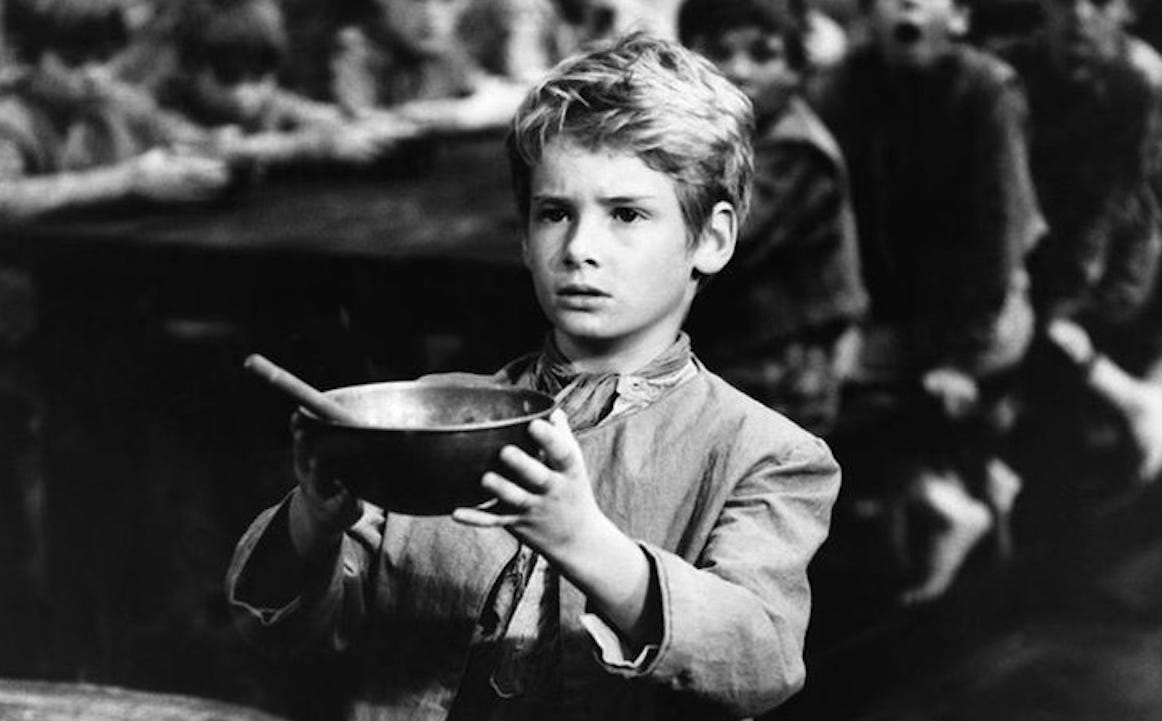
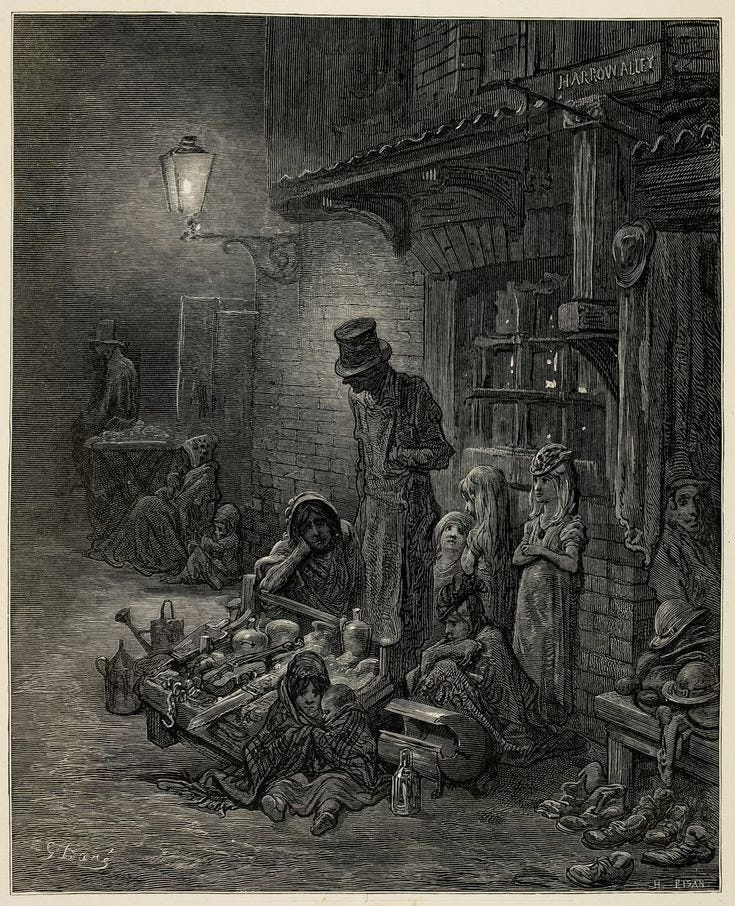
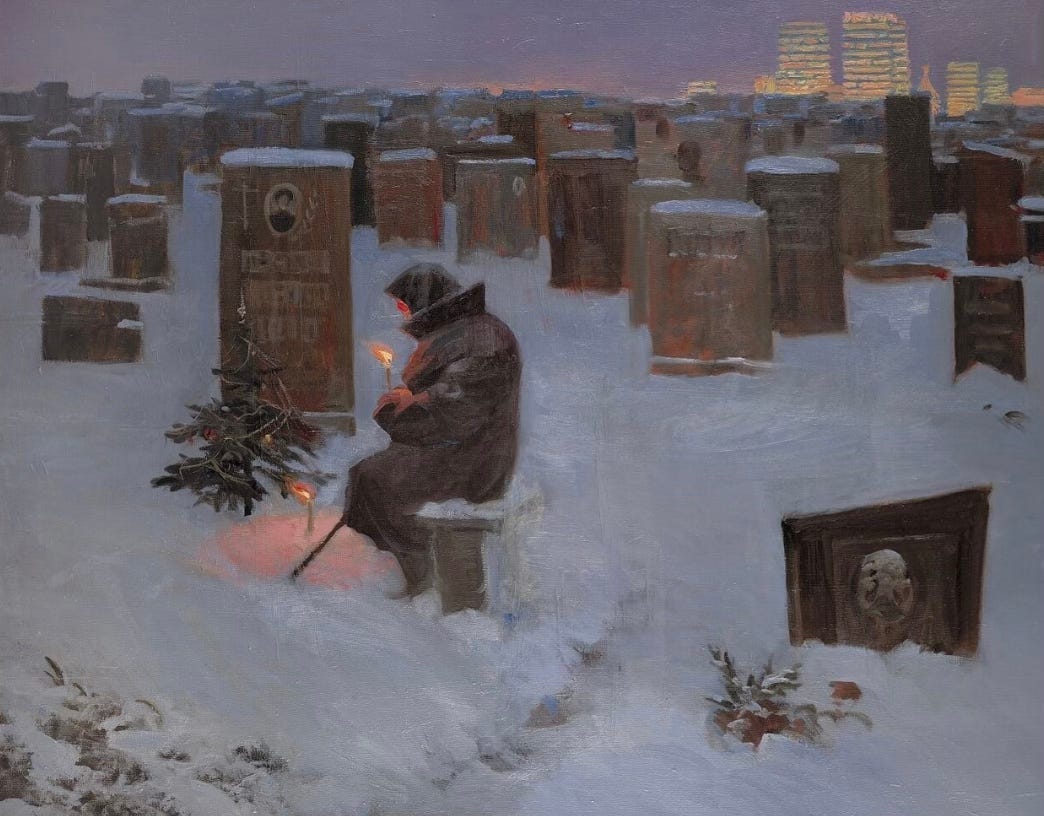
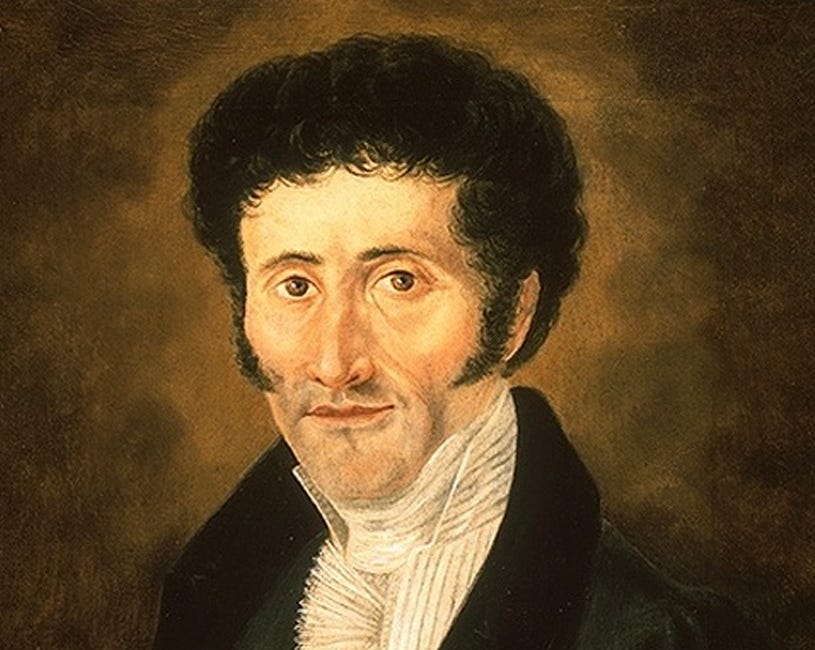

I don’t agree with your contemporary political views inserted into the reading of Dickens. He should be read for what he does best, depicting the concerns he had for an industrial society forgetting about the working class and the individual lost in that struggle (whether rich like Scrooge or poor like Oliver). His works are reminders to not forget the need to connect with all levels of society, that joy can be found in the poorest household and family relationships can be made between people sharing no blood. A Christmas Carol speaks to us because it entreats all of us to treat each other better. That is a perpetual message for all times and particularly relevant at this time of year. There are many arguments that can be made about the progress western society has made to protect the lives of all classes, but that’s not why we read Dickens. It is likely because he is an optimist about how a single individual can and does make a difference.
I referenced some of the themes in this piece in my last post if you're interested, though not as eloquently as this writer here. Thanks for the thought-provoking messages.
https://shellnorman.substack.com/p/ghosts-of-christmases-past?r=44j6y7&utm_campaign=post&utm_medium=web&showWelcomeOnShare=false